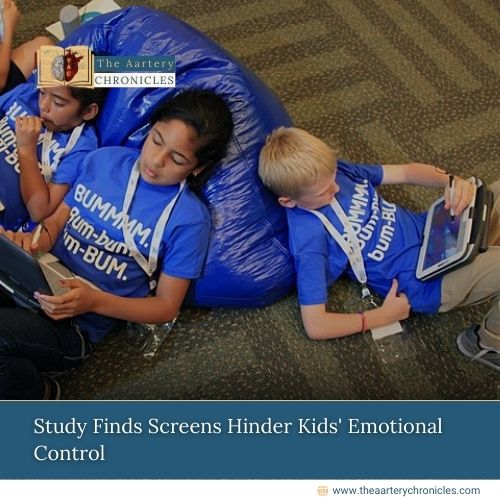
Study Finds Screens Hinder Kids' Emotional Control
Key Points
- Using digital gadgets to manage tantrums causes long-term emotional management difficulties.
- Children who were given gadgets performed worse on anger and frustration management tests.
- Parental guidance is more effective at managing emotions than technology distractions.
A recent study has highlighted that using digital devices to calm children during tantrums may hinder their ability to manage emotions later in life, potentially leading to anger management issues. The research also found that parents often resort to electronic devices to silence children who already have poor emotional control, exacerbating these pre-existing conditions.
Impact on Self-Control Development
Children learn essential self-control skills, including how to choose a deliberate response over an automatic one, during their early years. However, researchers from Hungary and Canada have discovered that the modern practice of using tablets and smartphones to distract children from their negative emotions can impair their ability to recognize and manage these emotions effectively.
“Tantrums cannot be cured by digital devices. Children need to learn to manage their negative emotions on their own, with the support of their parents, not through a digital device,” said Veronika Konok, a researcher at Eötvös Loránd University in Hungary and the lead author of the study published in Frontiers in Child and Adolescent Psychiatry.
The study followed 300 parents of children aged two to five over a year. It found that children pacified with digital devices exhibited poorer anger and frustration management skills. Parents completed questionnaires assessing their media usage and that of their children.
Interestingly, the study also found that children with poor behavior-controlled parents rely more frequently on digital devices as a calming tool. The more often children were given devices during tantrums, the less effort they made to control their behavior deliberately.
“It’s not surprising that parents more frequently use digital devices to calm children with emotion regulation problems, but our results highlight that this strategy can escalate a pre-existing issue,” Konok explained.
The researchers emphasized the importance of not avoiding situations that frustrate children. Instead, they recommend that parents coach their children through difficult moments, helping them recognize and handle their emotions.
The authors also suggested that parents receive support from health professionals through training and counseling, informed by these findings, to benefit children’s mental health and well-being.
Source: Inputs from various media Sources










